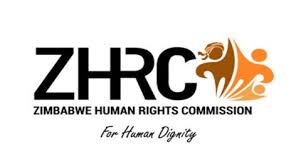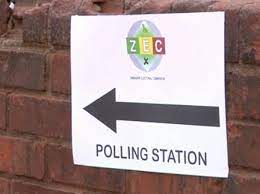Medical practitioners oppose health amendment bill that seeks to ban strikes

Medical practitioners are strongly against the proposed amendments to the Health Services Act that seeks to outlaw strikes and impose jail time for those who lead any industrial actions.
Doctors and nurses have often embarked on industrial action motivated by poor working conditions, low remuneration and shortages of essential medical equipment, a situation that forced public hospitals to function with low staff or turn away patients.
The proposed Health Services Amendment Bill, HB8, 2021 seeks to align the current Health Service Act of 2015 to the 2013 Constitution.
To achieve this, the bill designates the Health Service as a Commission to provide for the functions of such Commission and also provides the parameters of collective job action by health workers.
This Health Service Commission (HSC) shall be the employer of health service personnel, with powers of hiring and firing, promotion and demotion, as well as disciplinary matters.
At an information session of the proposed bill organised by the Zimbabwe Association of Doctors for Human Rights (ZADHR) in partnership with Southern African Parliamentary Support Trust (SAPST) in Bulawayo Wednesday, medical workers argued the government should rather focus on increasing public health sector funding in order to address their salaries, shortage of Personal Protective Equipment (PPE), overburdening work schedules and health worker migration.
The proposed bill states the HSC shall have regulatory powers, to be exercised with the approval of the Minister of Health and Child Care while in fixing of salaries, allowances and other benefits the HSC shall require the approval of the President given after recommendations of the Minister of Finance, and after consultation with the health minister.
ZADHR Secretary-General, Dr Norman Matara noted that if the bill becomes an act, voices of health workers would be subdued and would increase their migration.
“Health workers won’t be allowed to go on industrial action, this is more of muzzling voices, forcing them to work in unbearable conditions,” he said.
“Right now, medical personnel are paid low salaries, some are actually going out of the country because of this, so if passed it will increase pressure to leave as currently, they are working under very stressful conditions.”
Health workers concurred the act was an indirect way to ban strikes in the country and punish unionists by jailing them.
“It does not address the issue of incapacitation yet the industrial action is as a result of that,” said one doctor who could not be named in fear of victimisation.
Another health worker argued how the government assumed strikes were motivated by money yet health workers were worried by poor service conditions.
“They think we want to neglect patients but we are actually concerned about them. How do we treat them without medication, PPE and sundries?”
One doctor highlighted that doctors were guided by the “do no harm” principle but if they took on patients without the necessary equipment they were in fact doing more harm.
“What happens in the middle of surgery when electricity goes off? In fact, the government should resuscitate its economy and allocate 15 percent of the national budget to the health sector and this must be a strong currency not RTGS,” he said.
A legal officer from SAPST, Phillip Muziri advised the government that in a civil relationship the state should avoid criminal sanctions against its workers but deal with the contractual obligation and environment.
“If you use criminal sanctions, it creates problems because the state must not only depend on the use of coercive apparatus to subdue differences they have with the employer but use other remedies,” he said.
Health workers said the current Health Services act 15:16 (2005) had peculiar challenges that needed the separation of the health workforce from the Public Service Commission, just as the Judicial Services.
Other current concerns are that the Minister of Health and Child Care is empowered to appoint office bearers of the Health Services Board (HSB); direct policy decisions; recognise or revoke representation of health worker associations; and appoint hospital management boards, among other responsibilities.
The HSB, therefore, lacks independence as its office bearers are appointed, and beholden to the Minister of Health and the board does not have the independent capacity to make decisions that have a bearing on the welfare of health workers.
Any financial decision agreed in the health services bipartite negotiating panel will need to undergo a long, bureaucratic and less defined procedure of seeking Treasury agreement.





